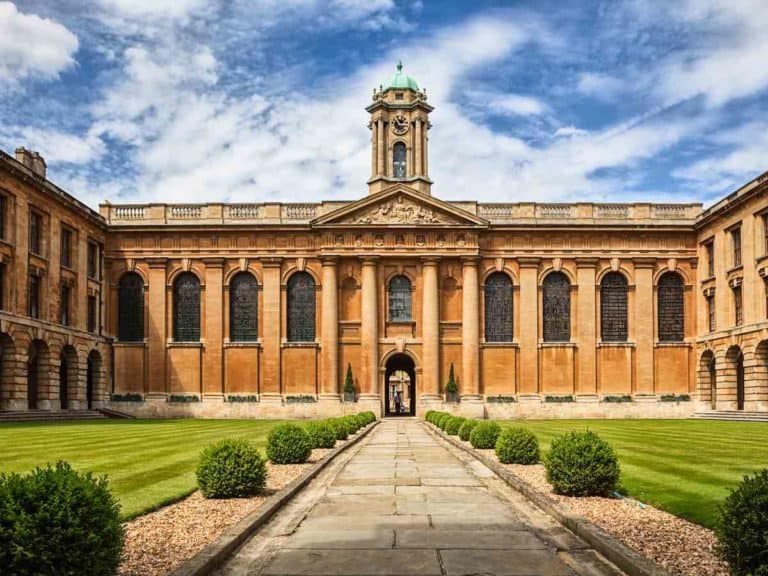12 Most Searched Colleges: Some May Surprise You
Popular colleges are well-known for a variety of reasons — hard to get into, surprisingly easy to get into, excellent degree programs, flexible online courses, affordable tuition, raging on-campus parties, massive population, etc.
If right now you are searching for some of the most searched colleges in the US, read on.
Below, we will talk about 12 of the most Googled institutions you may consider including on your college list. But before you shortlist any one of them, make sure that it’s the right fit and not just because many are researching them online.
Massachusetts Institute of Technology
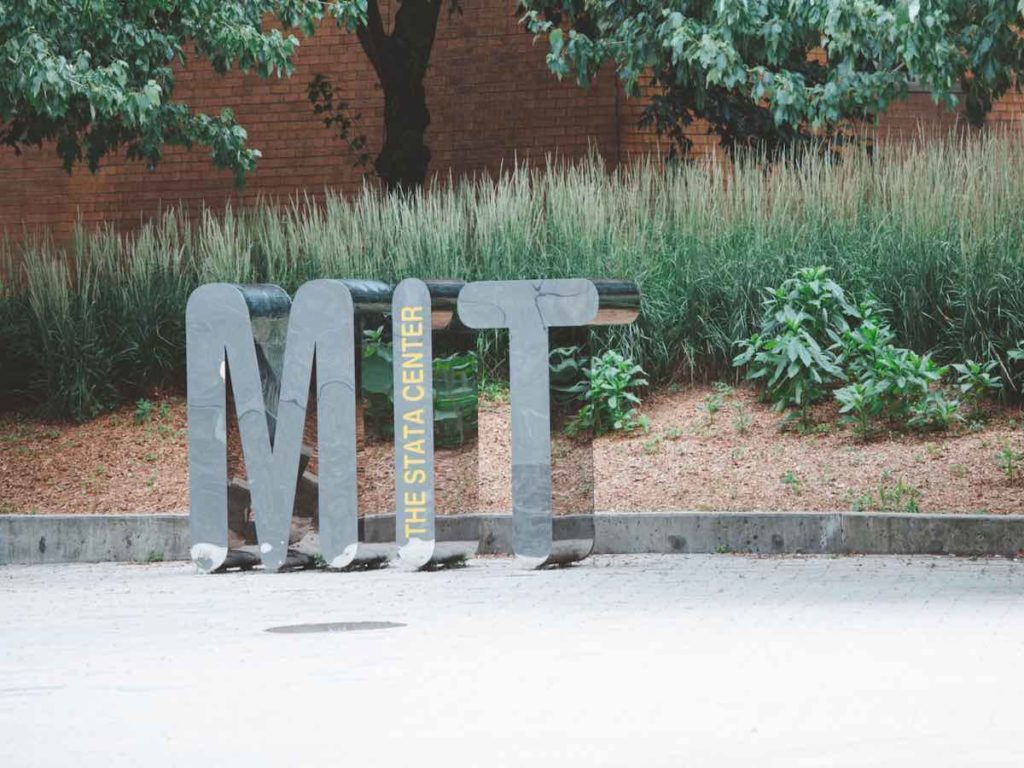
- Location: Cambridge, Massachusetts
- Founding date: 1861
- Campus size: 168 acres
- Campus type: Urban
- School type: Private land-grant research university
- Reputation: Party school
- Number of majors: 44
- Popular majors: Biology, computer and information science, engineering, mathematics, physical sciences
- Student body: 11,254
- Students per class: 10 to 19 in most classes
- Student-to-faculty ratio: 3:1
- Tuition: $55,510
- Acceptance rate: 7%
- Retention rate: 98%
- Graduation rate: 92%
- Average starting salary: $100,800 per year
MIT is popular for being a selective institution with strong programs in science and engineering. Considered an Ivy Plus, thousands and thousands of degree-seeking students apply to it. As a matter of fact, the class of 2026 had 33,976 applicants, which is regarded as a record high — a 2% increase in early and regular decision applicants.
To date, more than 3,000 companies were founded by MIT alumni members. Some of the most popular ones include Intel, Hewlett-Packard, Qualcomm, Bose, iRobot, Dropbox, BuzzFeed and Khan Academy.
Did you know that you can get a pirate’s license at MIT if you take sailing, archery, fencing and pistol classes in PE? While the school has been handing it out for around 20 years already, it was only in 2012 when it became official.
University of California – Los Angeles
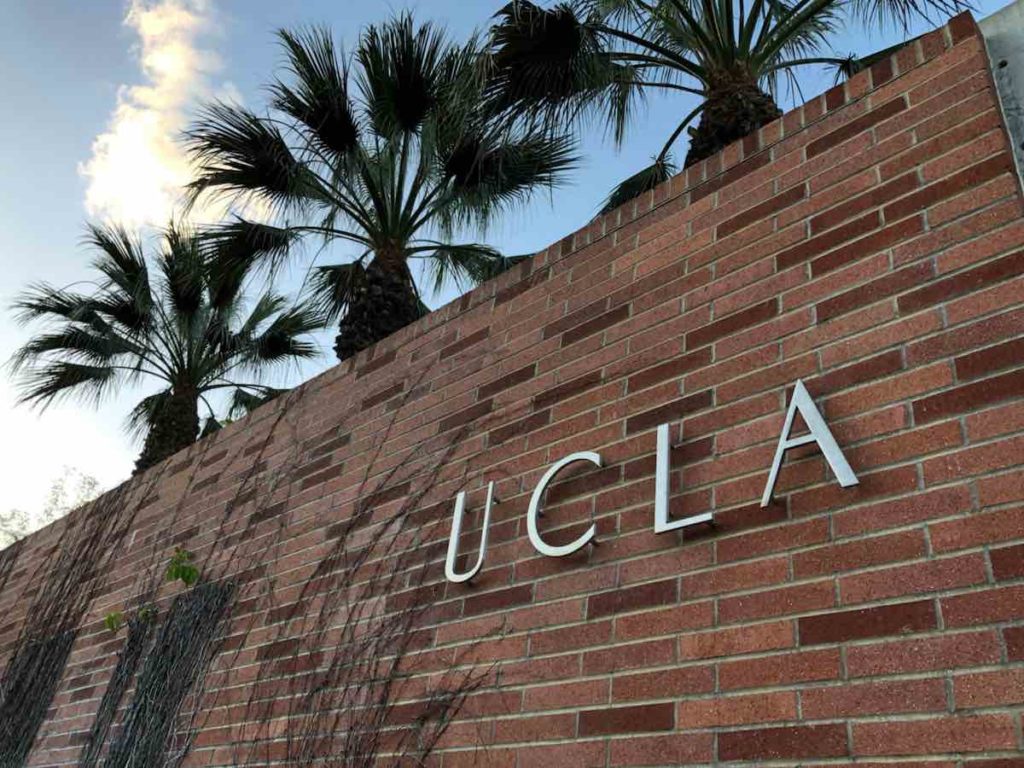
- Location: Los Angeles, California
- Founding date: 1919
- Campus size: 419 acres
- Campus type: Urban
- School type: Public land-grant research university
- Reputation: Party school
- Number of majors: 125
- Popular majors: Biology, economics, engineering, history, political science, psychology, sociology, social sciences
- Student body: 46,000
- Students per class: 2 to 9 in most classes
- Student-to-faculty ratio: 18:1
- Tuition: $11,442 (in-state) and $41,196 (out-of-state)
- Acceptance rate: 14%
- Retention rate: 96%
- Graduation rate: 91%
- Average starting salary: $49,600 per year
- Ranked #1 in Top Public Schools and #20 in National Universities by US News, UCLA is popular for its top-notch engineering and computer science programs. It also has some of the best graduate programs in the land.
Weather is a factor that not too many college-bound teens consider in the college-selection process. If you are one of those who do, you will be more than glad to know that the weather where UCLA is located is mostly awesome. It’s no wonder why Niche ranks the school #1 in both Best College Campuses in California and Best College Campuses in America.
Did you know that UCLA is considered the most applied-to four-year institution in the country? In 2022, for instance, it received around 149,700 applications — approximately 91,500 of those came from California residents.
Stanford University
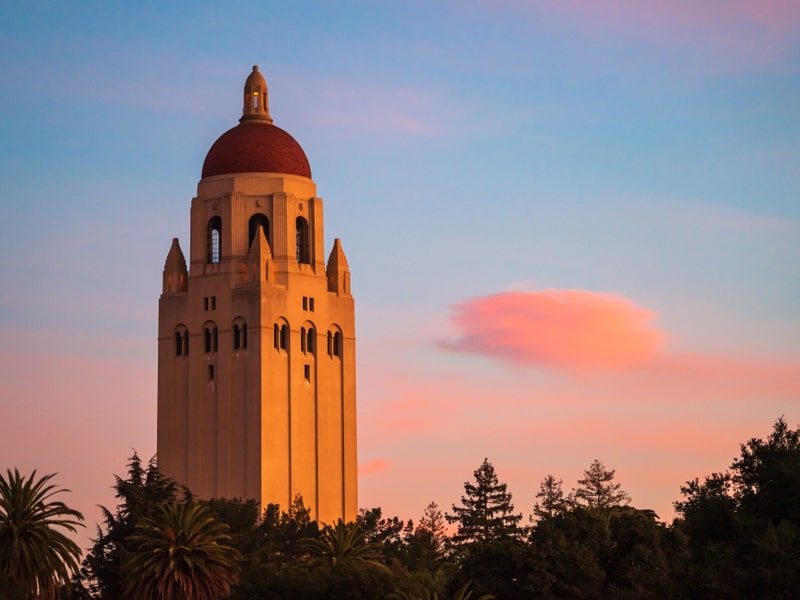
- Location: Stanford, California
- Founding date: 1885
- Campus size: 8,180 acres
- Campus type: Suburban
- School type: Private research university
- Reputation: Party school
- Number of majors: 69
- Popular majors: Biology, computer and information sciences, economics, engineering, math, social sciences
- Student body: 17,680
- Students per class: 10 to 19 in most classes
- Student-to-faculty ratio: 5:1
- Tuition: $55,473
- Acceptance rate: 5%
- Retention rate: 98%
- Graduation rate: 94%
- Average starting salary: $95,200 per year
Many people think that Stanford is an Ivy League school, but it isn’t. While it may not be one of the eight most prestigious institutions in the US, it is nonetheless regarded as a Hidden Ivy. Since the 1950s, nearly 70 Stanford faculty and alumni members have won the Nobel Prize. In addition, it has the most number of Turing award winners.
Stanford has the Carnegie R1 designation, which signifies very high research activity. As a matter of fact, the school is one of the most research-oriented universities not only in the US but also across the planet.
Did you know that Legally Blonde, which was originally a comedy novel but was then adapted into a movie, was based on the real-life experiences of its author, Amanda Brown, as a Stanford Law School student?
Columbia University
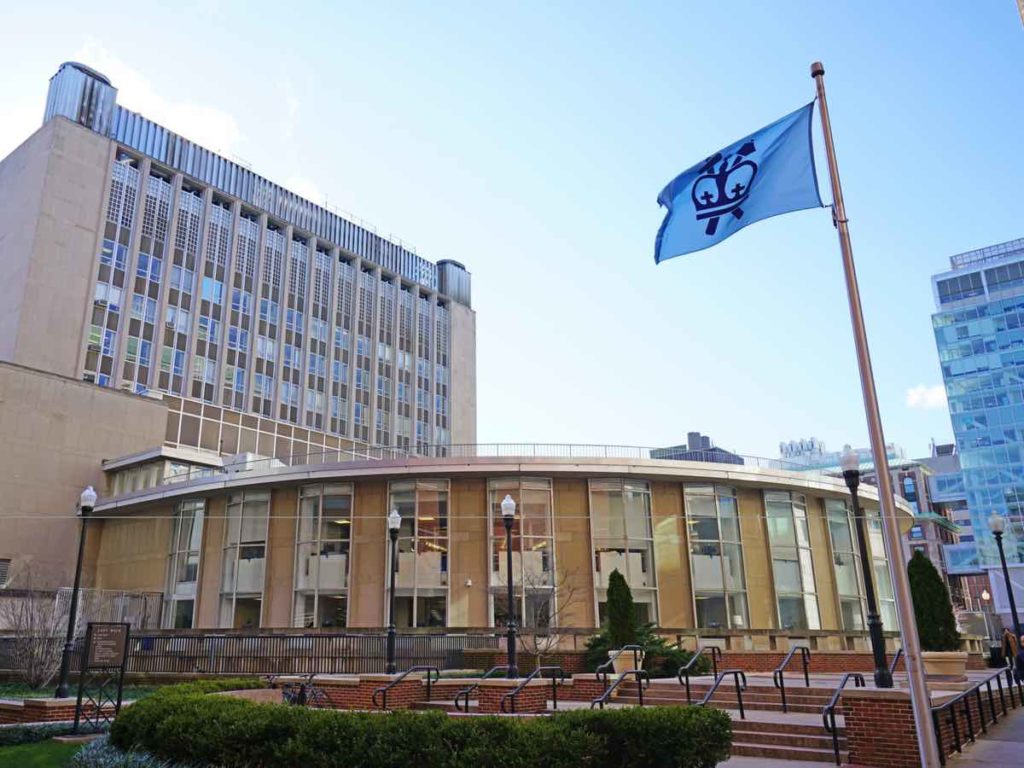
- Location: New York, New York
- Founding date: 1754
- Campus size: 36 acres
- Campus type: Urban
- School type: Private research university
- Reputation: Non-party school
- Number of majors: 100
- Popular majors: Computer science, engineering, English and literature, history, political science, social sciences
- Student body: 30,135
- Students per class: 10 to 19 in most classes
- Student-to-faculty ratio: 6:1
- Tuition: $58,920
- Acceptance rate: 7%
- Retention rate: 98%
- Graduation rate: 95%
- Average starting salary: $79,000 per year
- Being an Ivy League school, it isn’t surprising why Columbia is one of the most googled and applied-to universities in the US — each year, it receives over 50,000 applications. The elite school consists of three undergraduate colleges: Columbia College, the School of General Studies and the Fu Foundation School of Engineering and Applied Science.
Although the school administers the Pulitzer Prize every year, Columbia is considered the second most Nobel Prize-winning faculty, staff and graduates, the first being Harvard University.
Did you know that Columbia was the very first institution in the US to confer the Doctor of Medicine (MD) degree? This is true even if Columbia’s medical school was founded two years after the University of Pennsylvania created its own.
New York University
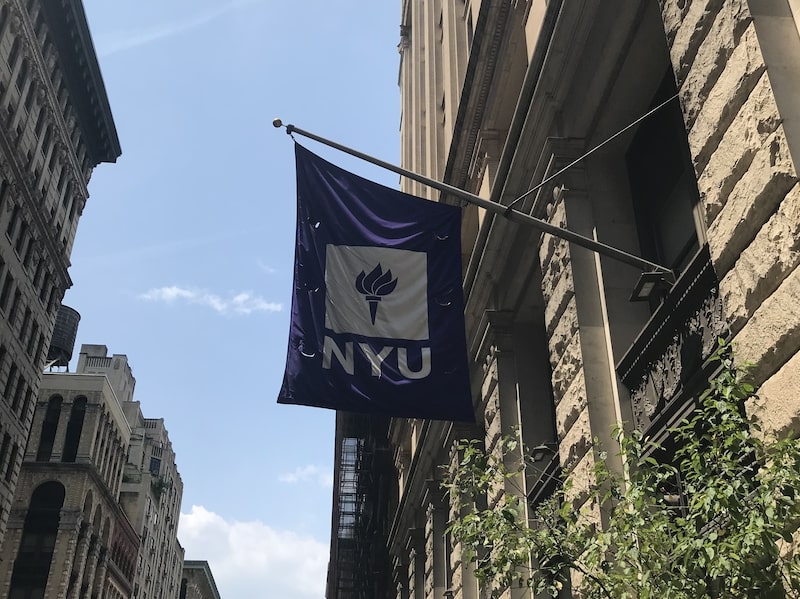
- Location: New York City, New York
- Founding date: 1831
- Campus size: 230 acres
- Campus type: Urban
- School type: Private research university
- Reputation: Non-party school
- Number of majors: 94
- Popular majors: Business, communication, economics, liberal arts and humanities, performing arts, social sciences
- Student body: 52,775
- Students per class: 10 to 19 in most classes
- Student-to-faculty ratio: 8:1
- Tuition: $52,204
- Acceptance rate: 21%
- Retention rate: 90%
- Graduation rate: 83%
- Average starting salary: $53,900 per year
Nearly 25% of NYU students come from outside the US, which makes the school have the highest number of international students in the land. Although it’s located in New York City, it also has a campus in Shanghai and Abu Dhabi as well as in 12 locations across the globe, from Accra, Ghana to Tel Aviv, Israel.
NYU should be added to your college list if diversity is an important consideration — you will be more than glad to know that Niche ranks it #2 in Most Diverse Colleges in New York and #8 in Most Diverse Colleges in America.
Did you know that NYU doesn’t have a traditional campus? The institution is composed of more than 20 schools and colleges located in five different places in and around New York City.
Florida State University
- Location: Tallahassee, Florida
- Founding date: 1851
- Campus size: 487 acres
- Campus type: City
- School type: Public research university
- Reputation: Party school
- Number of majors: 73
- Popular majors: Business, criminal justice, engineering, finance, psychology, social sciences, visual and performing arts
- Student body: 45,130
- Students per class: 10 to 19 in most classes
- Student-to-faculty ratio: 22:1
- Tuition: $4,640 (in-state) and $19,806 (out-of-state)
- Acceptance rate: 32%
- Retention rate: 93%
- Graduation rate: 79%
- Average starting salary: $37,800 per year
A part of the State University System of Florida, FSU consists of eight schools and eight colleges, one of which is the College of Engineering the institution operates with Florida Agricultural and Mechanical University (FAMU). Needless to say, FSU is one of the top universities for degree-seeking students who want nothing but the best engineering programs.
As a matter of fact, FSU is #90 in Best Colleges for Engineering in America by Niche. And by the way, the same college ranking site ranks the Tallahassee, Florida-based school #2 in Top Party Schools in America.
Did you know that FSU is the oldest university in Florida? When it was founded in 1851, it was known as the West Florida Seminary. It first operated in 1857 accepting only men but also began accepting women the following year.
Harvard University
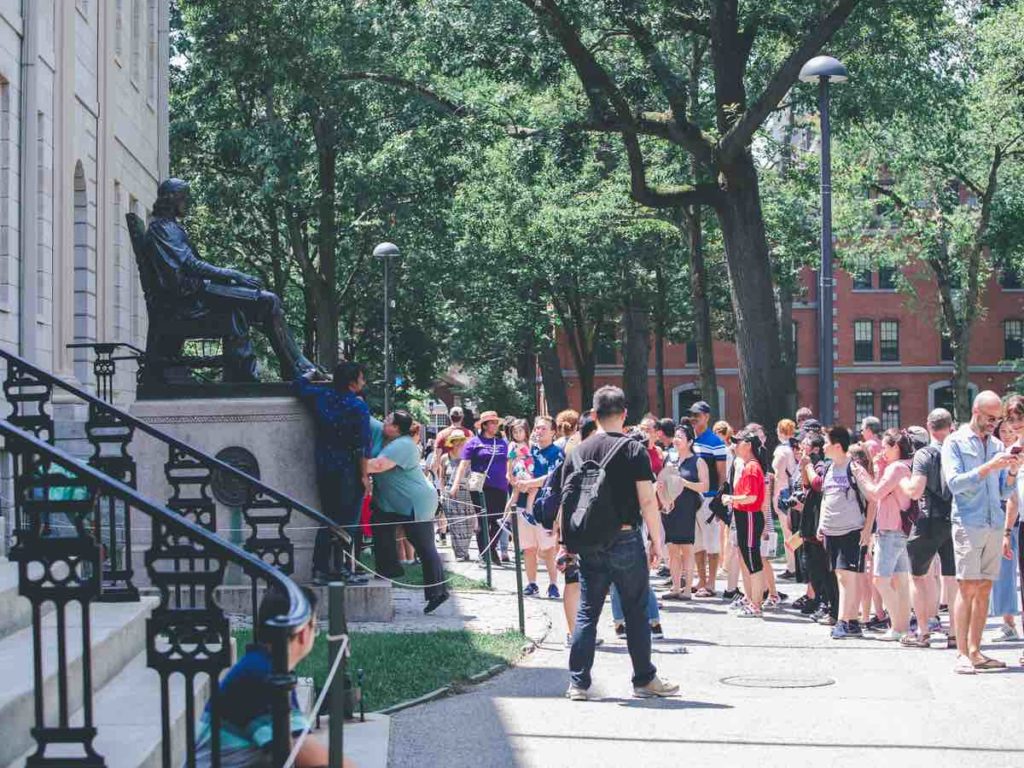
- Location: Cambridge, Massachusetts
- Founding date: 1636
- Campus size: 5,076 acres
- Campus type: Urban
- School type: Private research university
- Reputation: Non-party school
- Number of majors: 57
- Popular majors: Biology, computer science, economics, history, liberal arts and humanities, math, social sciences
- Student body: 21,648
- Students per class: 2 to 9 in most classes
- Student-to-faculty ratio: 7:1
- Tuition: $52,659
- Acceptance rate: 5%
- Retention rate: 96%
- Graduation rate: 98%
- Average starting salary: $96,800 per year
While it’s one of the most popular universities in the US and all over the planet, too, Harvard is also one of those that are the hardest to get into. As a matter of fact, Niche ranks the Ivy League #1 in Hardest Colleges to Get Into in Massachusetts. So, if you want an acceptance letter from it, you got to have a phenomenal application.
Just to give you a much better idea of how good you have to be in order to impress the admissions officers at Harvard, 73% of its admitted freshman students (per CDS 2021 to 2022) have a 4.0 GPA.
Did you know that Harvard is considered the richest university in the US?
Based on recent data, its endowment fund value is about $51.9 billion. It is followed by the University of Texas ($42.9 billion), Yale University ($42.3 billion), Stanford University ($37.8 billion) and Princeton University ($37.7 billion).
Liberty University

- Location: Lynchburg, Virginia
- Founding date: 1971
- Campus size: 7,000 acres
- Campus type: City
- School type: Private evangelical university
- Reputation: Non-party school
- Number of majors: 68
- Popular majors: Business, liberal arts and humanities, nursing, philosophy, psychology, religious studies
- Student body: 114,000
- Students per class: 10 to 19 in most classes
- Student-to-faculty ratio: 17:1
- Tuition: $20,534
- Acceptance rate: 100%
- Retention rate: 82%
- Graduation rate: 49%
- Average starting salary: $33,700 per year
While it also offers traditional or on-campus degrees, Liberty University is more popular for being an online school — it offers more than 400 online degree programs, the vast majority of which can be completed 100% online. It’s no wonder why most of its students are employed and more than 30,000 are veterans and service personnel.
Liberty University’s studentry, on-campus and online, represents all US states and more than 70 countries. There are over 3,500 faculty members available for its traditional and non-traditional attendees.
Did you know that Liberty University is considered the largest non-profit university in the US in terms of enrollment as well as one of the biggest Christian learning institutions in the country and around the globe?
University of Michigan – Ann Arbor
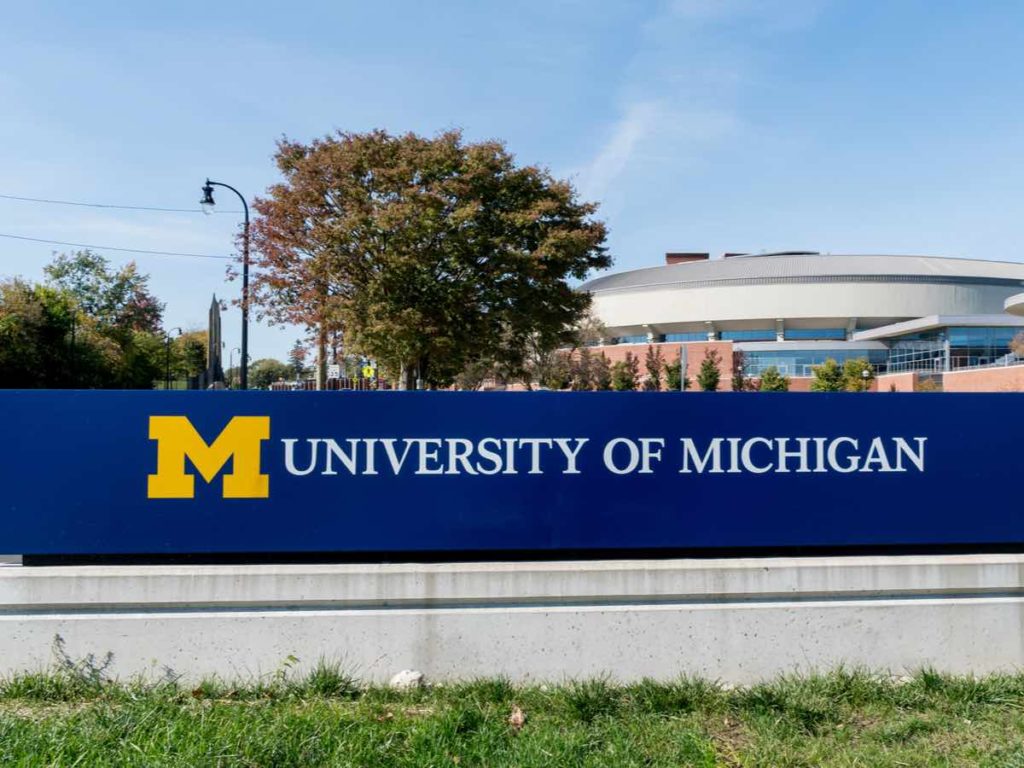
- Location: Ann Arbor, Michigan
- Founding date: 1817
- Campus size: 3,207 acres
- Campus type: City
- School type: public research university
- Reputation: Party school
- Number of majors: 81
- Popular majors: Biology, business, economics, engineering, information science, psychology, social sciences
- Student body: 50,278
- Students per class: 10 to 19 in most classes
- Student-to-faculty ratio: 15:1
- Tuition: $15,850 (in-state) and $52,904 (out-of-state)
- Acceptance rate: 26%
- Retention rate: 97%
- Graduation rate: 90%
- Average starting salary: $56,200 per year
- There are three campuses that make up UMich, each one completely different from one another but aligned together nonetheless. Of those, the one in Ann Arbor is considered the central campus.
UMich Ann Arbor is ranked #3 in Top Public Schools and #23 in National Universities by US News. The same college ranking site also highly ranks its various engineering programs. They include aeronautical, biomedical, chemical, civil, computer, communications, electrical, environmental, industrial, materials and mechanical engineering.
Did you know that the tuition at UMich Ann Arbor is $0 for students from families whose annual income is $65,000 or under as well as those whose assets are below $50,000? Also, the public research university adds that 1 out of 4 undergraduates residing in Michigan pay no tuition as a result of financial aid.
University of Florida
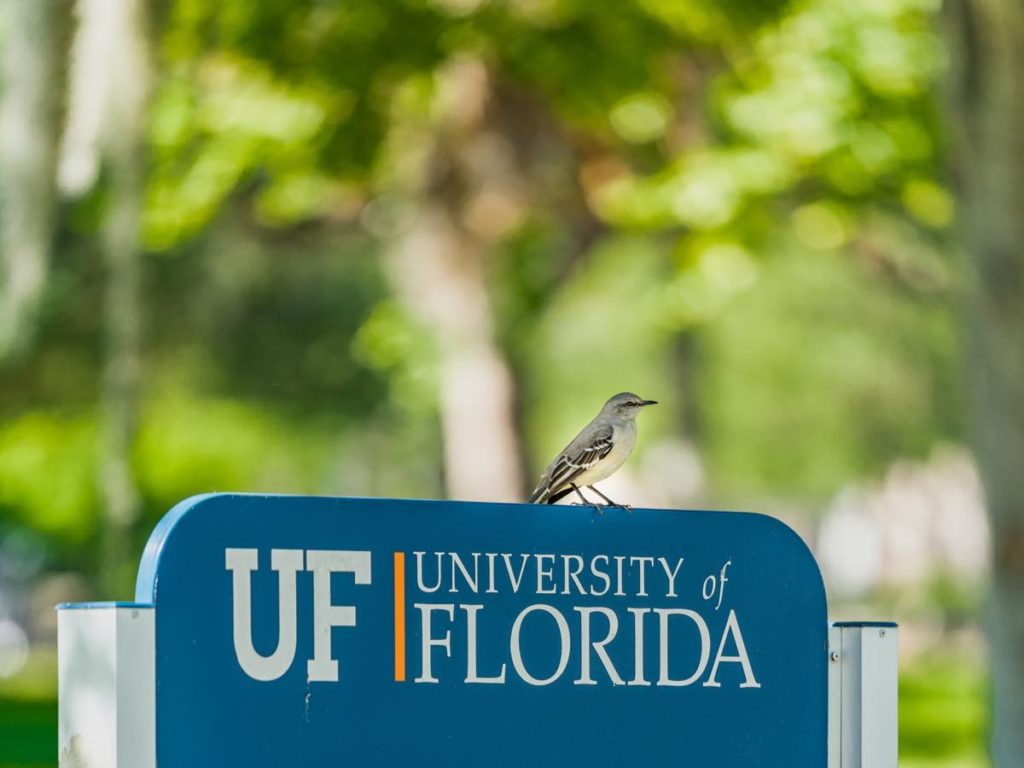
- Location: Gainesville, Florida
- Founding date: 1853
- Campus size: 2,000 acres
- Campus type: Suburban
- School type: public land-grant research university
- Reputation: Party school
- Number of majors: 90
- Popular majors: Biology, business, engineering, political science and government, psychology, social sciences
- Student body: 53,372
- Students per class: 10 to 19 in most classes
- Student-to-faculty ratio: 17:1
- Tuition: $6,380 (in-state) and $28,658 (out-of-state)
- Acceptance rate: 31%
- Retention rate: 97%
- Graduation rate: 87%
- Average starting salary: $47,000 per year
UF is known for offering some of the best engineering programs in the land. As a matter of fact, its agricultural, biological, biomedical, chemical, civil, environmental, industrial, materials and mechanical engineering programs are ranked by US News. Meanwhile, Niche ranks UF #31 in Best Colleges for Engineering in America.
As per UF CDS 2020 to 2021, 45% of admitted first-time, first-year students had a GPA range of 3.75 to 3.99. On the other hand, up to 39% of them had a 4.0 GPA.
Did you know that UF is considered a public Ivy League school? It was in 1985 when a listing of public Ivies first came out, which consisted of only 15 public colleges and universities. Now, there are 30 schools with the title.
University of Pennsylvania
- Location: Philadelphia, Pennsylvania
- Founding date: 1740
- Campus size: 299 acres
- Campus type: Urban
- School type: Private research university
- Reputation: Party school
- Number of majors: 100
- Popular majors: Biology, business, economics, engineering, finance, information science, nursing, social sciences
- Student body: 22,436
- Students per class: 10 to 19 in most classes
- Student-to-faculty ratio: 6:1
- Tuition: $54,652
- Acceptance rate: 9%
- Retention rate: 95%
- Graduation rate: 95%
- Average starting salary: $89,000 per year
Penn is one of the most highly ranked learning institutions in the US. For instance, it’s #8 in National Universities by US News, #9 in Best Colleges in America by Niche, and #16 in Best Private Colleges in the US by College Simply.
It’s no secret that Penn is one of the eight Ivy Leagues, which is why it’s one of the most searched colleges — everyone likes to know what it would take in order for them to get an acceptance letter from it. Of course, many are also curious as to whether or not Penn is the same as Penn State — Pennsylvania State University.
Did you know that the founder of Penn was Benjamin Franklin, who was also one of the Founding Fathers? When the Ivy League was established, it was a charity school that doubled as a place of worship.
Georgia Institute of Technology
- Location: Atlanta, Georgia
- Founding date: 1885
- Campus size: 400 acres
- Campus type: Urban
- School type: Public research university
- Reputation: Non-party school
- Number of majors: 37
- Popular majors: Architecture, biology, business, computer and information sciences, engineering
- Student body: $62,100 per year
- Students per class: 2 to 9 in most classes
- Student-to-faculty ratio: 21:1
- Tuition: $10,258 (in-state) and $31,370 (out-of-state)
- Acceptance rate: 21%
- Retention rate: 97%
- Graduation rate: 83%
- Average starting salary: $62,100 per year
As the name suggests, Georgia Tech is most known for its computer science (AI, computer systems, cybersecurity, data science, etc.) and engineering (aeronautical, biomedical, chemical, civil, computer, industrial, materials, etc.) programs. But the public research university also offers excellent business, marketing and liberal arts programs.
The school consists of six schools and colleges and around 30 departments. It has a Carnegie R1 designation, which makes it suitable for students who intend to complete research-heavy programs. As a matter of fact, every year, Georgia Tech allots more than $1 billion for research activities alone.
Did you know that Georgia Tech holds what’s known as RATS Week every year?
Short for Recently Acquired Tech Students, RATS Week enables first-time, first-year students to get acquainted with the school’s traditions.
There are many factors college-bound students must consider when deciding whether or not to apply to a particular institution. No matter your personal preferences, academic ideals and career goals, make sure that you choose a college not because it’s popular but because it’s the right one for you.
Disclaimer: The views and opinions expressed in this article are those of the authors and do not necessarily represent those of the College Reality Check.


